Veterans Day is a time for all Americans to pause and honor the men and women who served in the military, often at great personal cost. For older veterans, it’s a day that brings back memories—both good and difficult—of their years in service. And for those in caregiving roles, Veterans Day offers a meaningful chance to connect with these heroes on a deeper level, creating special moments that go beyond typical care.
Whether we’re family caregivers or professional caregivers, supporting veterans is about more than assisting with daily routines. It’s about appreciating the incredible stories these veterans hold, the sacrifices they made, and the unique challenges they continue to face. On Veterans Day and every day, we can show our respect and gratitude by finding ways to bring joy, comfort, and dignity into their lives. Here’s how caregivers can make a difference in honoring veterans, acknowledging their sacrifices, and supporting their needs in practical and personal ways.
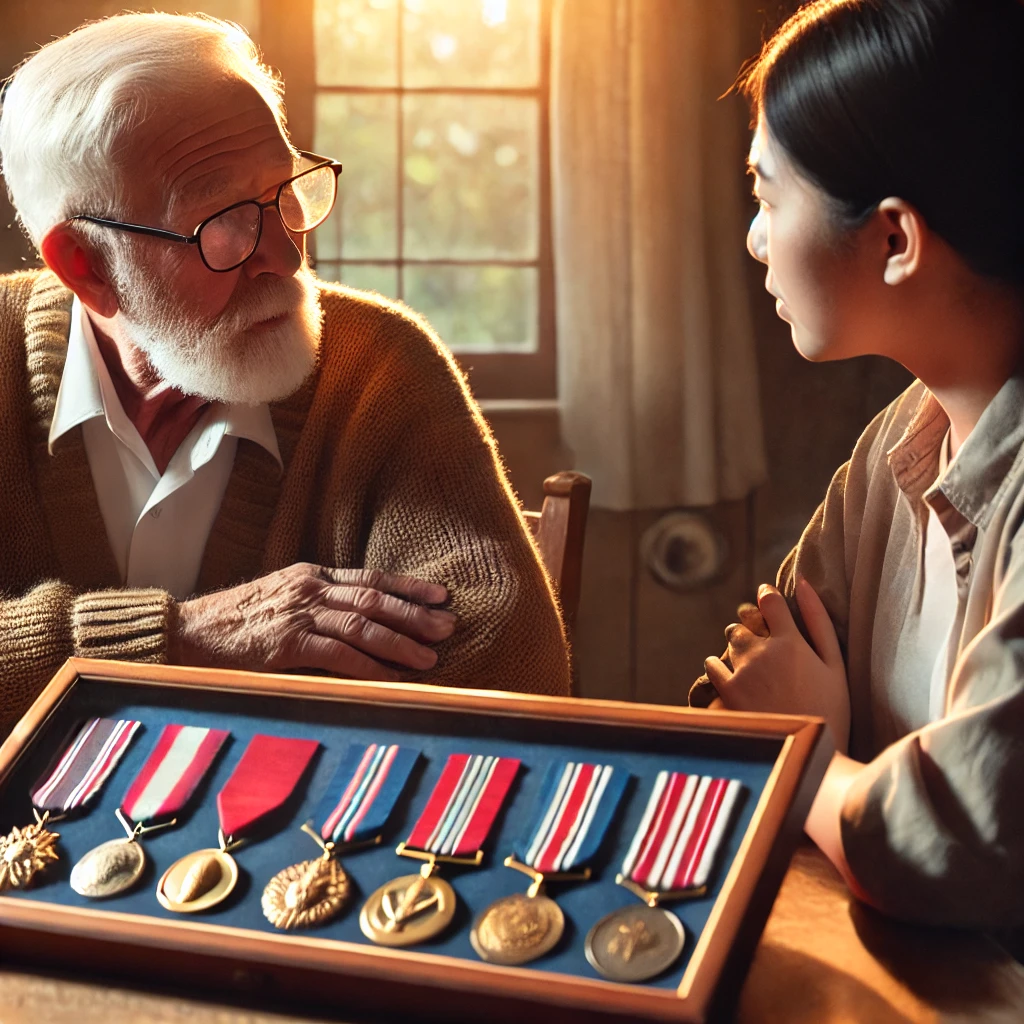
1. Recognizing and Addressing the Unique Needs of Veteran Clients
Veterans often face challenges that are different from those of other seniors, shaped by their time in service and sometimes by experiences in combat. Many of these needs are physical, but there are also mental and emotional scars that can linger. Caregivers can make a real difference by understanding and responding to these unique situations.
Supporting Physical Health: For many veterans, old injuries or the physical toll of military service can lead to chronic pain, mobility challenges, and other health complications. Caregivers can help by assisting with physical therapy exercises, managing medications, and helping veterans complete daily tasks that may have become difficult over the years.
Providing a Safe Space for Mental Health: Conditions like PTSD, anxiety, and depression are unfortunately common among veterans. Caregivers who understand these challenges can provide an empathetic ear, create calm and predictable routines, and even assist clients in accessing counseling or mental health support. Sometimes, just being there to listen can offer comfort.
Using Adaptive Tools and Technology: From mobility aids to devices that assist with hearing or vision, adaptive technology can be life-changing for many veterans. Caregivers can help clients learn to use and maintain this equipment, making daily life a bit easier and allowing veterans to maintain as much independence as possible.
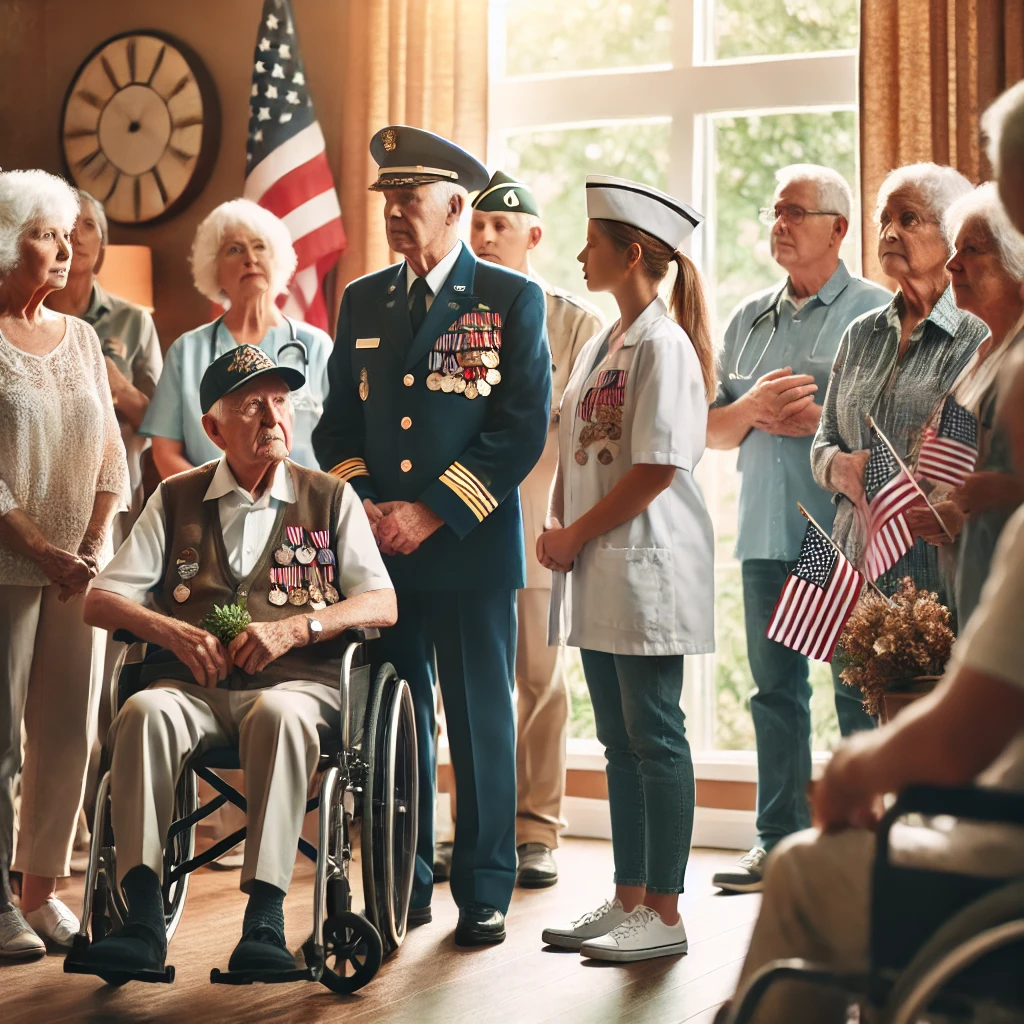
2. Fostering Connection and Community
Many veterans built strong bonds with their fellow service members, and that sense of community is something they often miss later in life. Caregivers can help veterans find meaningful ways to connect with others and stay socially active.
Encouraging Group Activities: Many veterans find comfort in spending time with others who understand their experiences. Caregivers can help by setting up group activities at a local Veterans of Foreign Wars (VFW) post, American Legion hall, or even just coordinating social events where veterans can connect and share their stories.
Creating Space for Storytelling: Listening to veterans share their stories can be incredibly meaningful, both for them and for those around them. Caregivers can encourage storytelling, even if it’s just one-on-one, or help veterans document their memories in a journal or scrapbook. It’s a simple way to honor their experiences and help them relive those connections.
Celebrating Veterans Day Together: For veterans, attending Veterans Day ceremonies or events can be deeply fulfilling. Caregivers can make arrangements to accompany them or, for those unable to leave home, set up a small observance at home or in the senior community. These moments are more than just ceremonies—they’re affirmations of the veterans’ lives and service.
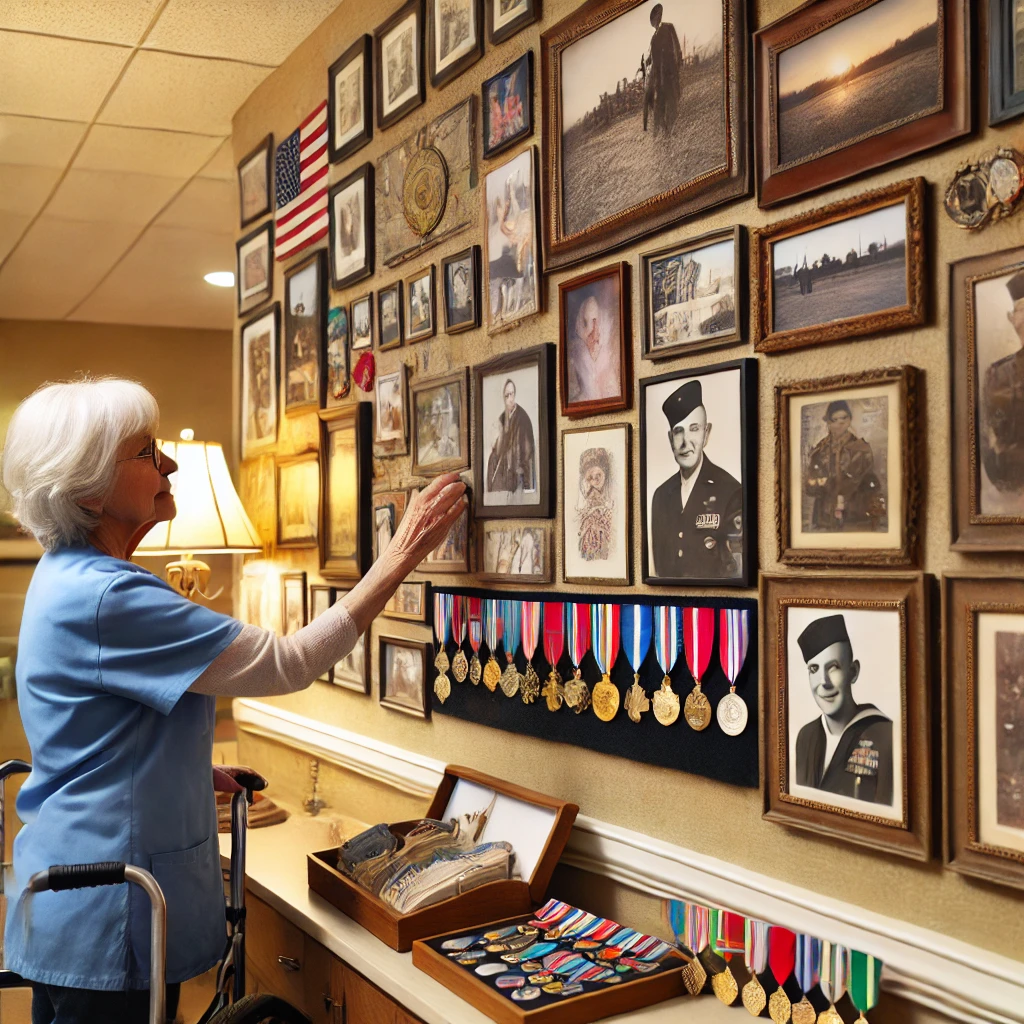
3. Learning About Military Culture and Experiences
For caregivers, understanding military culture can help make their work more meaningful and respectful. Veterans come from a background where values like discipline, respect, and loyalty are foundational. Learning about their experiences can help caregivers connect in a more meaningful way.
Improving Communication: When caregivers are familiar with military terminology and the structure of the military, it can be easier to build trust. Veterans often feel more understood when caregivers can “speak their language” or at least show an awareness of their world.
Delivering Trauma-Informed Care: For veterans who’ve been through trauma, it’s essential that caregivers approach their care with sensitivity and understanding. Recognizing signs of PTSD or anxiety and knowing how to respond can make caregivers a source of calm and reassurance.
Building Respectful Relationships: Veterans are used to a certain level of respect and structure, and caregivers who can understand and adapt to these values often find that they’re able to build stronger, more positive relationships. It’s about honoring who the veteran is and where they come from.
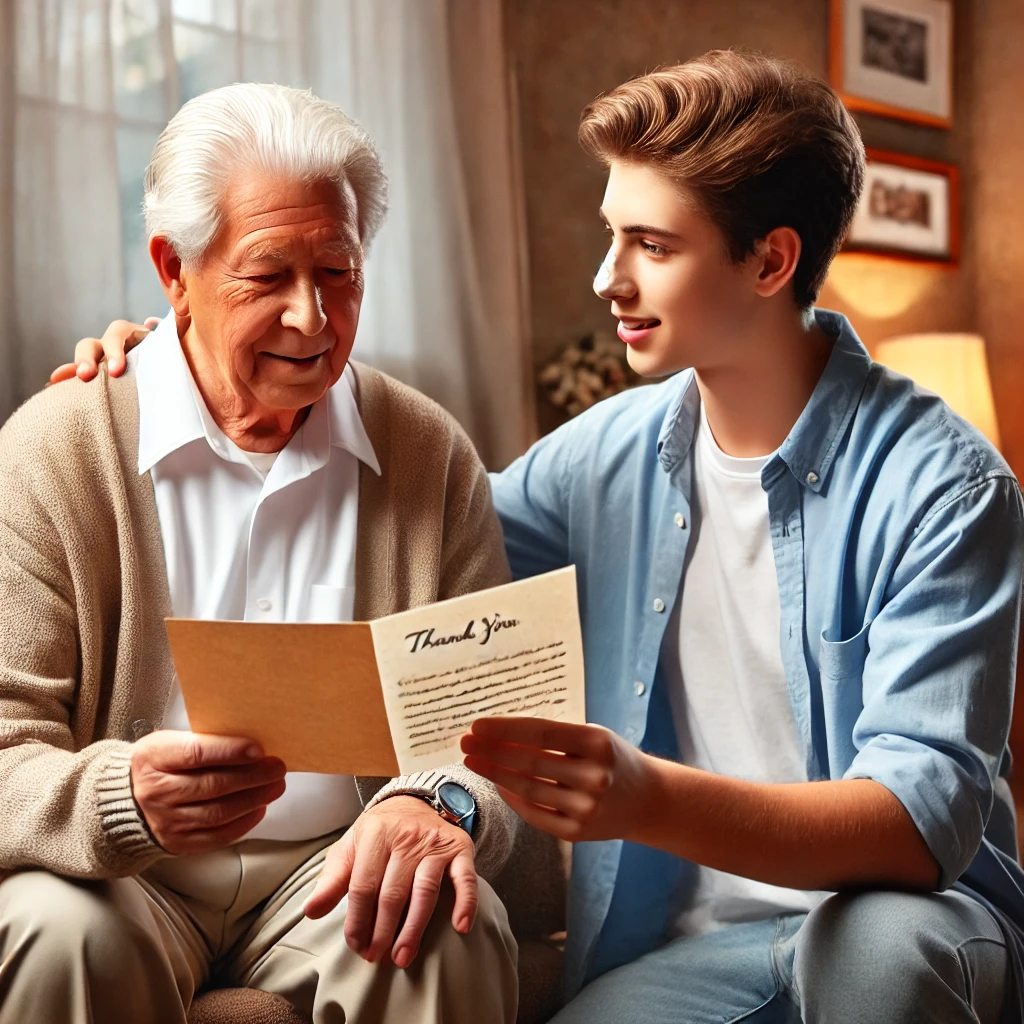
4. Helping Veterans Access Special Benefits and Programs
Veterans have earned a variety of benefits that can be especially helpful in meeting their care needs. However, the process of navigating these benefits can be confusing. Caregivers can provide valuable support by helping veterans and their families access these resources.
VA Aid and Attendance Benefits: For veterans who need help with daily tasks, the Aid and Attendance benefit can make a huge difference. Caregivers can assist by helping gather the necessary paperwork, coordinating with Veteran Affairs, or simply guiding families through the application.
Connecting with Veteran Support Organizations: There are many organizations out there dedicated to helping veterans, from financial assistance to mental health services. Caregivers can help connect veterans to these resources, arrange for visits, or help them explore the support available to them.
Helping Veterans Take Advantage of Veterans Day Perks: Many restaurants, businesses, and community organizations offer discounts, free meals, and other perks for veterans on Veterans Day. Caregivers can help veterans enjoy these benefits, arranging a special outing or helping them participate in local events that honor their service.
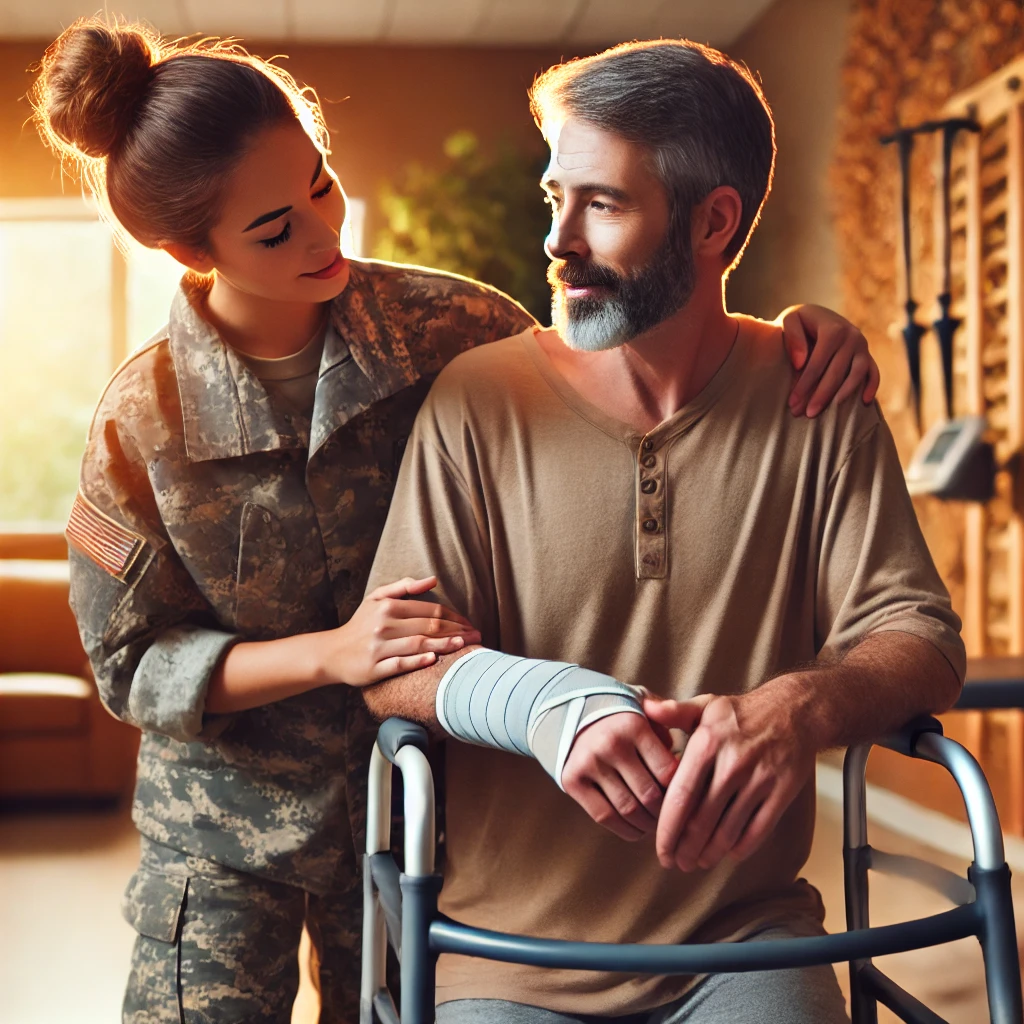
5. Supporting Families Alongside Veterans
Caring for a veteran doesn’t just impact the veteran themselves; it also affects their families. Family members are often key sources of support, and caregivers can make life a little easier for them too.
Offering Family Respite Care: Caring for a veteran can be physically and emotionally draining. Respite care provides family members with a much-needed break, especially around Veterans Day, when they may want to attend events without worrying about caregiving duties.
Helping Families Navigate Benefits: Some families may not be aware of the full scope of benefits their loved one is entitled to. Caregivers can help by providing guidance and connecting them to information and resources that can improve the veteran’s quality of life.
Facilitating Family Time: Veterans Day is a perfect opportunity to bring families together. Caregivers can help make video calls with distant relatives possible or organize a special meal or visit, creating moments that honor the veteran and allow families to make memories together.
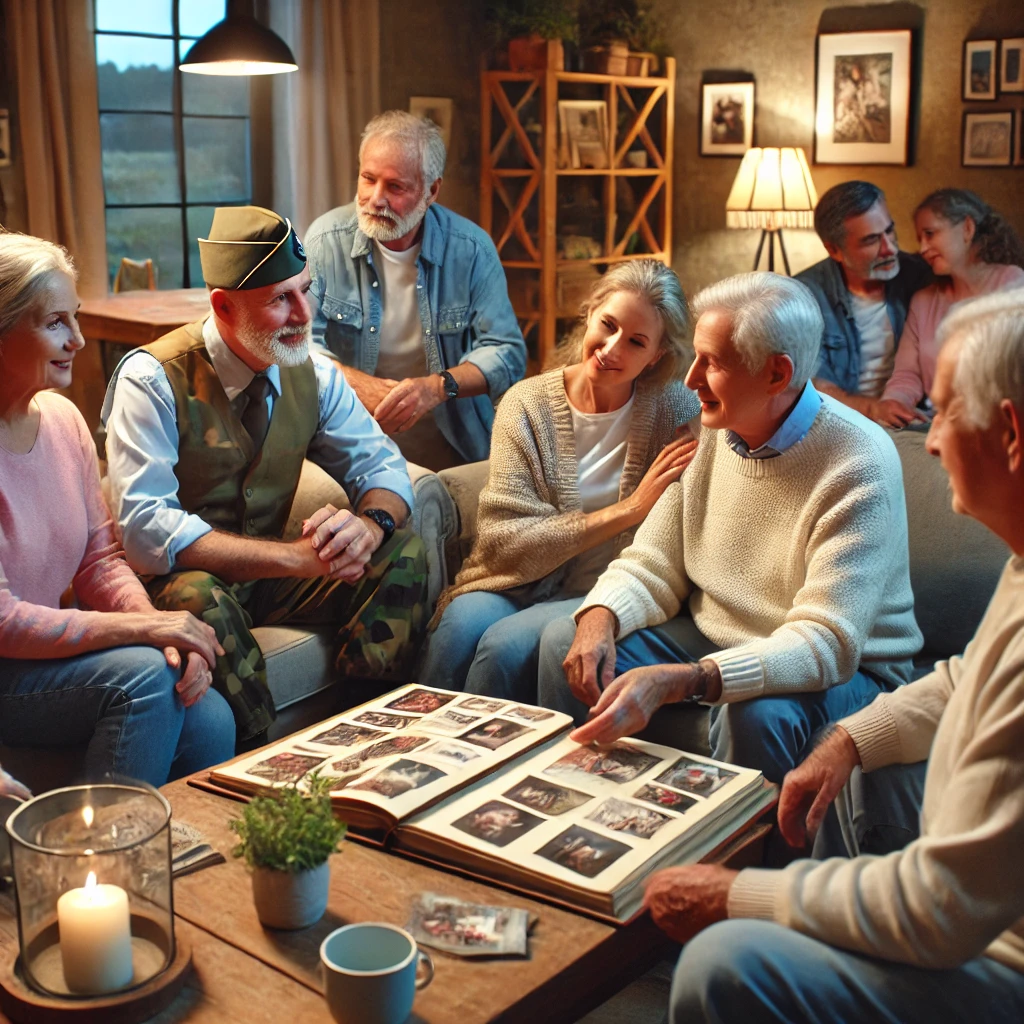
6. Honoring Veterans with Special Programs and Activities
Veterans Day is the perfect time to make veterans feel celebrated and valued. Here are a few meaningful ways caregivers can do that:
Host a Recognition Ceremony: Setting up a small recognition ceremony, with a flag-raising, a reading of veterans’ biographies, or a simple “thank you” session can be a beautiful way to show respect and gratitude.
Create a Memory Wall: Caregivers can work with veterans and their families to create a display of photos, medals, and memorabilia. This “memory wall” can serve as a tribute to their service and a way for them to share their history with others.
Make Time for Appreciation Letters: Caregivers, family members, or even community members can write letters or create thank-you cards for veterans. It’s a simple but touching way to show gratitude and give veterans something to keep as a reminder of their contributions.

7. Supporting Veterans Beyond Veterans Day
While Veterans Day is an important day to recognize and appreciate veterans, the care they receive throughout the year is what truly matters. Caregivers can make a difference by promoting veterans’ health and well-being every day.
Staying Physically Active: Encouraging veterans to engage in gentle exercises or rehabilitation routines can greatly improve their quality of life. Physical health contributes to mental well-being, and small activities can go a long way.
Emotional Support and Mental Health: Veterans may need help managing ongoing mental health challenges. Caregivers can offer support by creating a stable routine, suggesting activities that promote mental wellness, and helping veterans access mental health resources.
Encouraging a Healthy Lifestyle: From balanced nutrition to hydration and proper sleep, there are many areas where caregivers can promote health. Creating an environment where veterans feel safe, valued, and healthy is one of the most important ways to honor them every day, not just on Veterans Day.
Conclusion
Veterans Day is a chance to express our gratitude and show respect for those who served our country, but true appreciation goes beyond a single day. Through attentive and compassionate care, caregivers have the privilege of honoring veterans’ service and helping them lead fulfilling, dignified lives. Whether it’s sharing in a Veterans Day event, supporting their physical and mental health, or simply listening to their stories, caregivers play an essential role in celebrating and caring for these heroes.